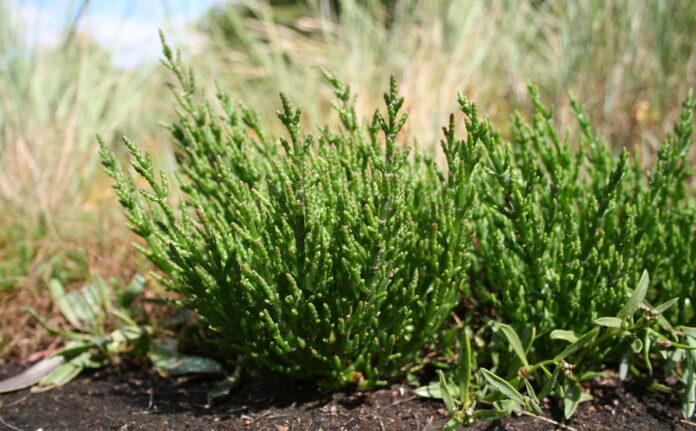Salicornia brachiata is a halophyte, meaning it is a salt-tolerant plant that typically grows/found in saline environments such as coastal areas, salt marshes, and tidal flats. It belongs to the family Amaranthaceae and is part of the genus Salicornia, which is commonly known as Glasswort, Samphire, Sea Asparagus, Pickleweed, Umari and Keerai.
Key Features of Salicornia brachiata:
- Habitat: It thrives in salty or brackish environments and is well-adapted to withstand high salinity levels.
- Appearance: The plant is succulent and fleshy, with segmented, cylindrical stems that are often green but may turn reddish under stress or during certain seasons.
- Uses:
- Culinary: Some Salicornia species are edible and used as a vegetable or garnish in coastal cuisines. However, the specific culinary use of S. brachiata depends on local practices.
- Ecological: It plays a role in stabilizing coastal ecosystems, preventing soil erosion, and improving saline soil quality.
- Biotechnological: This plant has gained attention for its potential in bio-saline agriculture, phytoremediation, and as a source of bioactive compounds. It is particularly noted for its antioxidant and medicinal properties.
- Economic Importance:
- Salicornia brachiata is being researched as a source of biodiesel due to its ability to produce oils under saline conditions.
- It may also be used for the extraction of bioactive compounds like flavonoids and phenolics.
Conservation and Challenges
Although it is resilient, Salicornia brachiata may face threats from habitat loss, pollution, and climate change, which can affect coastal and saline ecosystems where it grows.
